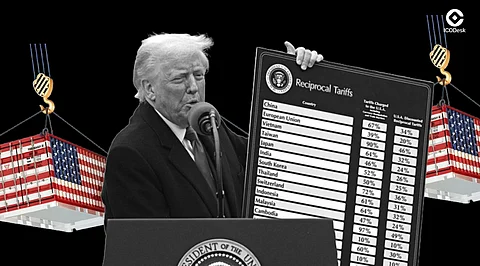

US President Trump has imposed a 25% tariff on goods coming into the United States from India, which will go into effect after 1 August 2025. Along with the tariff, he threatened undesignated punishment because India is continuing to buy Russian oil and military wares. Trump published the announcement on his Truth Social social network and criticized India over its attitude to keeping the tariffs high and trading with Russia amid the war in Ukraine.
He mentioned India as a friend, but he said that India's tariff policies are among the highest in the world. Trump criticized India because it acquires military equipment and energy resources from Russia, and thus does not contribute to world peace by ending the conflict in Ukraine. This is not the first time that the US has halted such tariff threats.
The Indian government, for its part, affirmed its intentions of establishing a mutually beneficial trade deal on favorable terms with the US. It has focused on its desire to promote the welfare of Indian farmers, entrepreneurs, and small businesses. According to officials, the government was examining the impacts of Trump's admission and would do what was necessary to safeguard national interests.
Since April 2025, the negotiations between the two countries have been going on. The talks have not had consistent momentum, as restrained ones accompany positive comments by authorities. US Trade Representative Jamieson Greer has accepted the fact that India has always been a protectionist concerning its trade policies. Still, he was sharp in telling us that the contact between the two parties would not stop. He continued to stress the new US administration's focus on the opening of foreign markets to American goods.
One of the main concerns in the trade negotiations is agriculture. The US considers the Indian farm sector to be a premium market for exporting US produce. But India has made it strong to safeguard its agriculture sector by giving reasons about food security and the livelihood of small-scale farmers. Commerce Minister Piyush Goyal has said that India would not compromise on its farm interests in any deal.
Regardless of these differences, Goyal was optimistic about the signing of a significant trade agreement. He said they were making progress in their talks with US counterparts and referred to the projected deal as a consequential partnership. India reduced tariffs in recent years on some goods, such as motorcycles and whiskey, but the US still runs a significant trade deficit with the country.